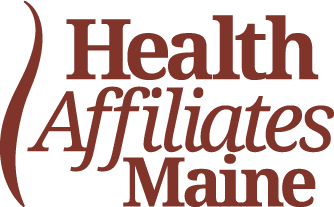When we recently completed our bi-annual licensing review with zero deficiencies, we celebrated! Not because perfection is the goal, but because it reflects the systems and infrastructure that make quality care possible.
For clinicians in private practice, licensing reviews can feel like one more administrative burden. But these reviews aren’t just about compliance. They’re about whether the foundation beneath your practice is strong enough to support your clinical work — or whether it’s constantly pulling your attention away from your clients.
What a Licensing Review Evaluates
Licensing reviews examine whether a practice meets state requirements across multiple areas: clinical documentation, billing accuracy, staff qualifications and training, client rights and grievance procedures, privacy protections, and adherence to scope of practice standards.
It’s comprehensive and detailed. For solo practitioners or small practices, maintaining this level of oversight while seeing clients, managing referrals, and staying current in your training can be genuinely difficult.
A zero-deficiency review doesn’t happen by accident. It reflects intentional systems, regular internal audits, and a culture that prioritizes doing things right.
Clinical Excellence and Administrative Compliance Go Together
Most clinicians didn’t enter this field because they love paperwork. But the reality is that clinical excellence and administrative compliance are inseparable. When documentation isn’t thorough, it affects continuity of care. When billing isn’t accurate, it creates financial stress. When privacy protocols aren’t followed consistently, trust erodes.
Here’s the tension: doing all this well requires time, expertise, and infrastructure that many solo practitioners simply don’t have. You can be an exceptional clinician and still find yourself overwhelmed by the demands of running a compliant practice.
What Strong Infrastructure Looks Like
Strong practice infrastructure includes:
- Billing systems that catch errors before claims are submitted
- Documentation support that helps you stay consistent without eating into clinical time
- Credentialing management that keeps your provider information current across all payers
- Policy updates that translate changing regulations into actionable guidance
- Regular internal audits that identify small issues before they become larger problems
- Access to consultation when you encounter situations outside your typical scope
For affiliates at Health Affiliates Maine, this infrastructure is provided as part of the model. When a licensing review happens, the systems are already in place.
Why This Matters
Many private practice providers spend significant time each week on administrative tasks: billing follow-ups, insurance authorization requests, documentation catch-up, continuing education tracking, and policy review. That time is exhausting — and it’s time away from clients and the parts of your work that energize you.
A strong administrative foundation doesn’t mean you lose autonomy. It means the business side runs smoothly enough that you can exercise that autonomy in meaningful ways: choosing your clients, setting your schedule, and building the kind of practice you want to sustain long-term.
You Don’t Have to Do It All Alone
One of the most common misconceptions about private practice is that independence means doing everything yourself. But sustainability often requires collaboration — whether that’s a billing specialist, a peer consultation group, or an affiliate model that provides comprehensive support.
At Health Affiliates Maine, we work with independently licensed clinicians who want the freedom of private practice without the administrative overwhelm. We handle the billing, credentialing, compliance, and policy interpretation so you can focus on what you do best.
Our recent licensing review is a reflection of that partnership. When the administrative side is done well, it doesn’t interfere with clinical care — it supports it.
Is the infrastructure beneath your practice supporting you, or depleting you? Strong practices are built on strong systems. Sometimes, the best decision you can make for your practice is to partner with people who understand that.
Become an Affiliate



